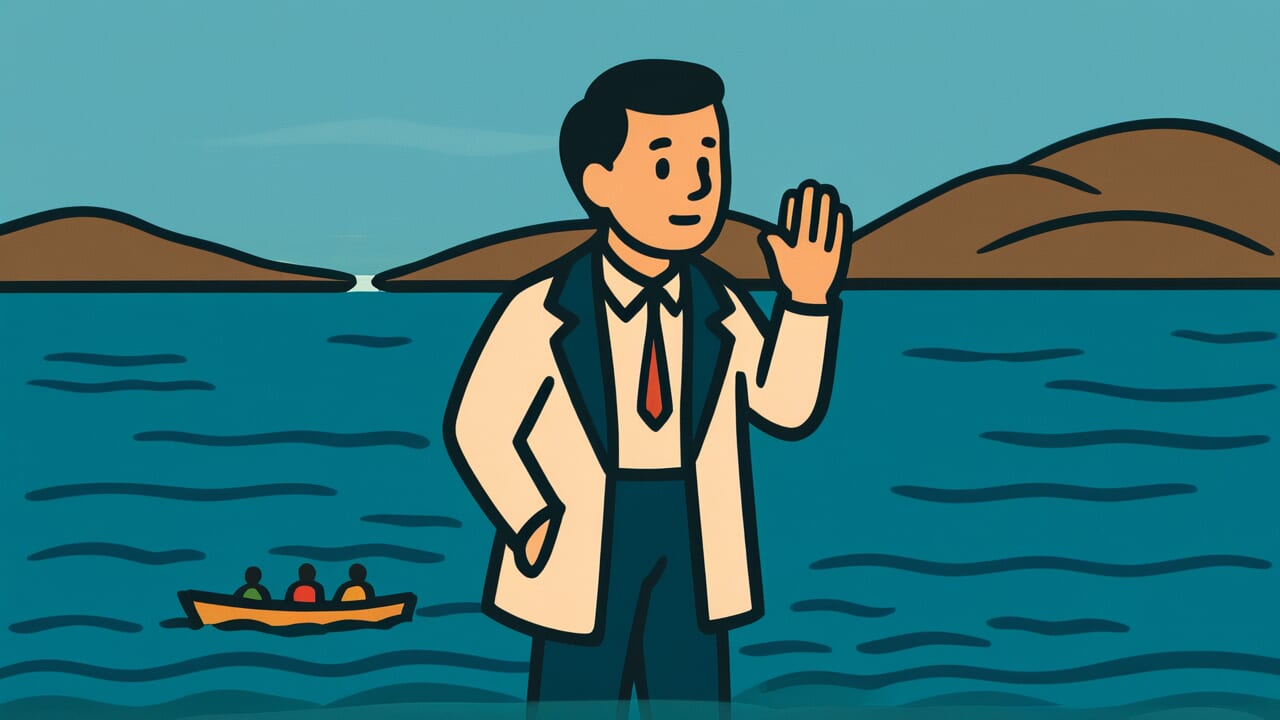How to Read “One bay different, seven bays different”
Hitoura chigaeba nanaura chigau
Meaning of “One bay different, seven bays different”
“One bay different, seven bays different” means that even small differences can create big gaps. A slight change in conditions or a tiny difference can produce results that are far bigger than expected.
This proverb teaches us not to be fooled by surface similarities when judging things. Even when things look similar at first glance, small details can have a huge impact on the whole.
People use this saying when slight differences in environment or conditions bring unexpected results. It also warns against ignoring small differences.
For example, similar regions might have very different cultures. Or a small change in procedure might greatly affect product quality.
Today, we understand this as a universal truth that applies to all fields. Tiny differences in starting conditions can lead to major differences in the end.
Origin and Etymology
The exact first appearance of this proverb in literature is unclear. But based on its structure, it likely comes from life in Japan’s coastal regions.
“Ura” means a bay or a settlement along the coast. Japan is an island nation with a complex coastline. People have lived in bays and inlets since ancient times.
Because of the mountainous terrain, you had to cross mountain passes to reach the next bay. Even short distances created geographic barriers between communities.
In this environment, neighboring bays often had very different climates, sea conditions, and fishing methods. Even dialects and customs varied greatly.
Even though they faced the same ocean, different tidal currents and seafloor shapes meant different fish were caught. This created differences in food culture and lifestyle.
“One bay different, seven bays different” likely came from these real experiences. The number “seven” doesn’t mean exactly seven.
It means “many” and emphasizes the surprise that small differences create unexpectedly large gaps. This saying came from the sharp observations of people who lived with the sea.
Usage Examples
- The recipe is the same, but “one bay different, seven bays different” – the taste is completely different depending on the shop
- It’s just one letter different, but “one bay different, seven bays different” – the impression changes completely
Universal Wisdom
The proverb “One bay different, seven bays different” shows deep insight into the world’s complexity and diversity. Humans tend to simplify things to understand them, but reality isn’t that simple.
Small differences pile up and create unexpectedly large gaps.
This wisdom has been passed down for so long because humans constantly make the mistake of underestimating small differences. In our search for efficiency, we often overlook details.
We think similar things are the same and ignore slight variations. But in reality, those small differences create essential distinctions.
This proverb also contains the importance of humility. It warns against thinking you can judge everything based only on your own experience and knowledge.
If you can’t even know the next bay accurately, you shouldn’t pretend to know distant places. You must actually go, see with your eyes, and feel with your skin to truly understand.
You can also read an attitude of respecting diversity. Differences aren’t mistakes – they’re inevitable results of different environments and conditions.
This perspective becomes even more important in our modern world, where uniformity keeps increasing.
When AI Hears This
Why do neighboring ura (bays), only a few kilometers apart on a map, have such different cultures and customs? This is a perfect example of what chaos theory calls “sensitive dependence on initial conditions.”
In chaos theory, tiny differences in initial conditions expand exponentially over time. For example, meteorologist Lorenz made a famous discovery.
A rounding error in decimal places (the difference between 0.506 and 0.507) produced completely different weather forecasts. One bay and the next bay are the same.
A slight difference in ocean current direction, a mountain being tens of meters higher, thirty minutes difference in sunlight hours – these tiny geographic differences accumulate over many generations.
What’s interesting is that this phenomenon isn’t completely random – it’s deterministic. In other words, if you could fully grasp the initial conditions, you could theoretically predict it, but in practice it’s impossible.
Fishing methods, festival formats, language dialects – these aren’t coincidences. They’re results that inevitably branched from the initial value of geography.
This proverb is evidence that humans intuitively understood from experience the scientific truth that “system complexity exceeds prediction.”
The same reason why even modern weather forecasts can only go one week ahead applies here.
Lessons for Today
What this proverb teaches modern people is the importance of attention to detail and the caution to avoid easy generalizations.
In our information-overloaded modern society, we seek efficiency and try to roughly classify and pattern things to understand them. But what’s truly important lies within those differences.
This lesson applies to business and human relationships alike. Even if you take a similar strategy to competitors, slight differences in execution can separate success from failure.
In relationships with people, don’t try to fit others into types. Paying attention to each person’s unique character and background is the key to building deeper relationships.
When you learn something or judge something, don’t jump to conclusions saying “this is the same as what I saw before.” Observe carefully once more.
The sensitivity to notice those small differences will help you grow and lead you to new discoveries. A heart that values small differences creates a rich life.



Comments